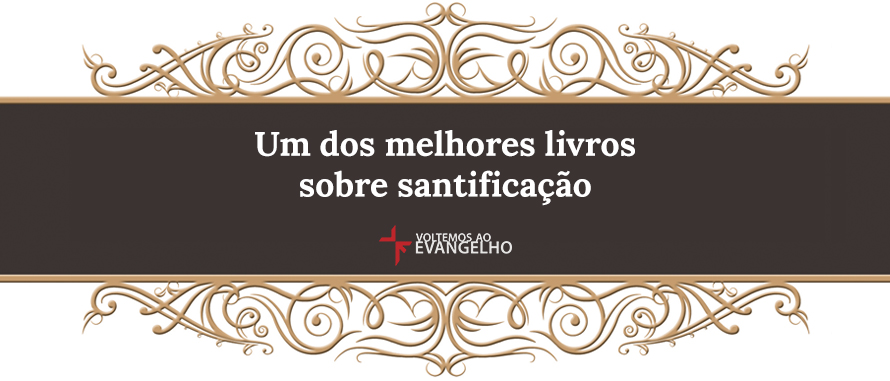In the first centuries of the Church’s existence, Christian apologists sometimes used the clearly holy life of Christians as proof of the truth of Christianity. Would that call be helpful today? According to several surveys, the behavior of those who profess to be Christians is not visibly different from those professed by other religions, or not at all of religion. The phrase often heard from pagans observing contemporary Christian behavior is: “The Church is full of hypocrites. “It shouldn’t be like that. We worship a holy God who calls his people to be holy and who has provided the means by which he can be holy.
The problem of neglected and hypocritical Christianity is not new, and one of the best treatments of the whole subject is a classic written by JCRyle (1816-1900), who was Anglican bishop of Liverpool for twenty years. Ryle was a deeply engaged evangelical. Christian, but he didn’t give in to pressure. Charles Spurgeon even called him a “hero of the gospel. “His book Holiness has been reprinted several times since its original publication in 1879. It is rightly regarded as a Christian classic on the subject. sanctification and can be classified at the same level as John Owen’s work on the mortification of sin.
- I first read Bishop Ryle’s Holiness about twenty years ago.
- The book was deeply convincing and had a lasting impact on my thinking.
- Ryle’s work is persuasive because it does not require silly tricks or other human responses to the problem of sin.
- To the scriptures.
- The Word of the living God.
- And reaches the heart of God’s Word through its careful and direct application.
- If you are satisfied with your sin and do not want to be disturbed by your appreciation.
- Do not read Ryle.
- Book on the need for sanctification.
- On the need for holiness.
- Deals with heavy issues.
- Those with the most weight.
- In fact: God.
- Sin.
- Jesus Christ.
- The gospel.
- The Holy Spirit.
- Justification.
- Sanctification.
- Heaven.
- And hell.
- It is a book for those who want to go beyond milk and reach the substance of the Word.
Frankly, some older Christian books are difficult to read because of the style of writing that was common in ancient times. For contemporary readers, many of these works seem dry and long, boring and boring. I’ve found a lot of books like this myself, but Ryle doesn’t fall into this category. His writing is more comparable to that of someone like Charles Spurgeon. He writes with such intensity and passion that the reader does not get bored easily.
The book itself contains twenty chapters dealing with various topics related to holiness, and a chapter containing quotations on the subject of older Christian writers. In the main section of the book, Ryle devotes entire chapters to topics such as sin, sanctification, the nature of Christianity as a struggle, cost-calculation, growth in grace, security, the Church, and the love of Christ. The introductory chapter on sin is perhaps the most important chapter of the whole book, because false visions of salvation and holiness are inevitably based on false visions of sin. As Ryle explains, “If a man does not realize the dangerous nature of the disease of his soul, is it surprising that he is content with false or imperfect remedies?”
One of the most common mistakes when talking about holiness is falling into the idea that we are somehow justified before God by our holiness. Throughout this book, Ryle is careful to note the distinction between sanctification and justification. Justification is only by faith, in Christ alone; But those who have been justified bear the fruit of the Spirit and grow in holiness; that is, they are sanctified by God; Then they must love Christ and the things he loves; it’s very easy to forget in our time. , when going in front of a stage is considered a conversion, but walking in the light is considered optional.
Whether you have been a Christian for ten months or ten years, I encourage you to read Ryle’s Holiness. His words will exhort, convince, encourage, and challenge him. His chapters will lead him to deepen the scriptures, and then he will see that holiness is not optional for the Christian; we must fight for holiness, without which no one will see the Lord (Hebrews 12:14); We must walk through the Spirit and not satisfy the desires of the flesh (Gal 5:16) We must love the Lord because He loved us first (1 John 4:19) and love our neighbor as ourselves (Mt 22:39).
Translation: Joel Paulo Aragono da Guia Oliveira Reread: Yago Martins. © 2016 Ministério Fiel. All rights reserved. Web: MinisterioFiel. com. br. Original: one of the best books on sanctification
Authorizations: You are authorized and encouraged to reproduce and distribute this material in any format, provided that the author, his ministry and translator are no longer no longer modified and not used for commercial purposes.

